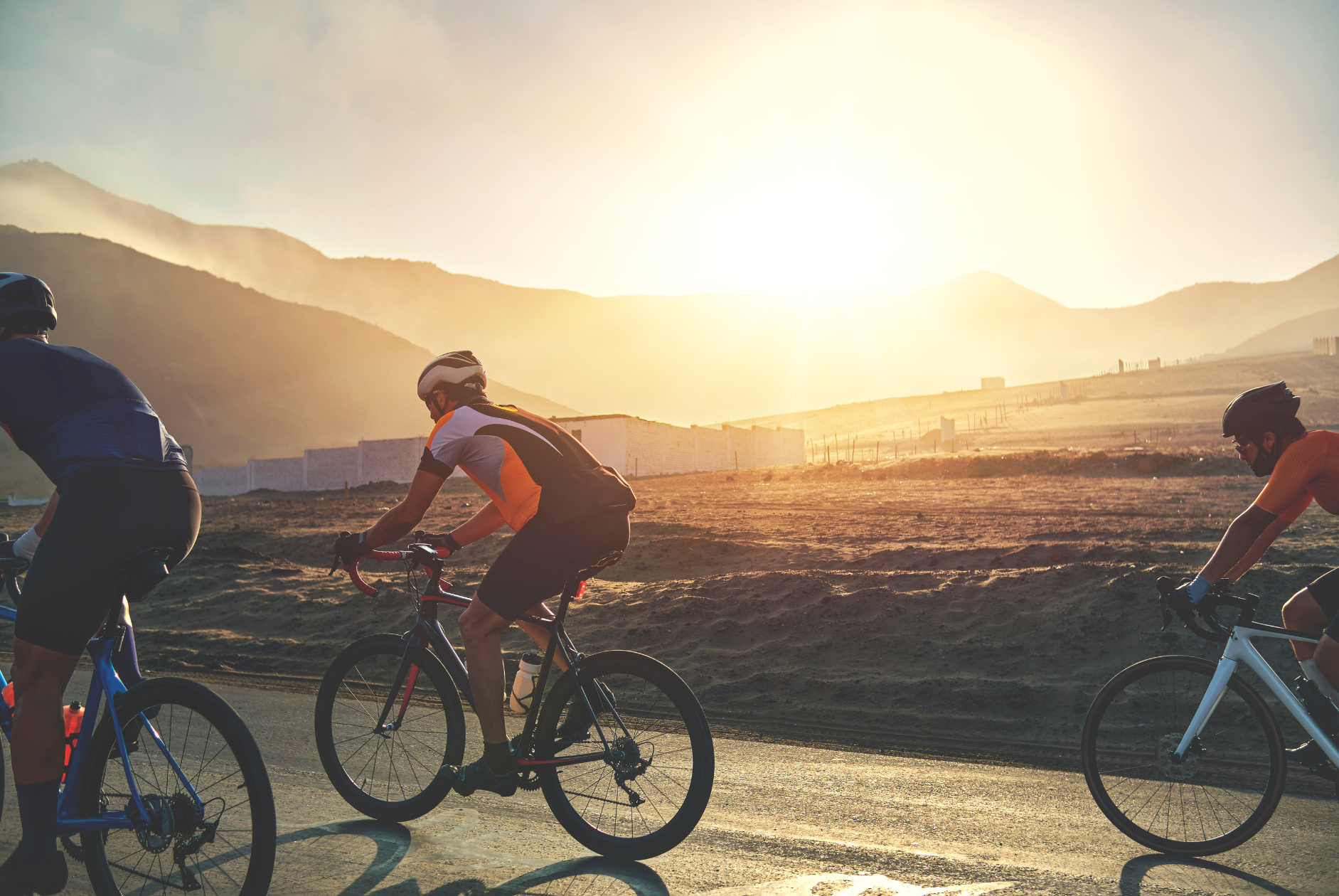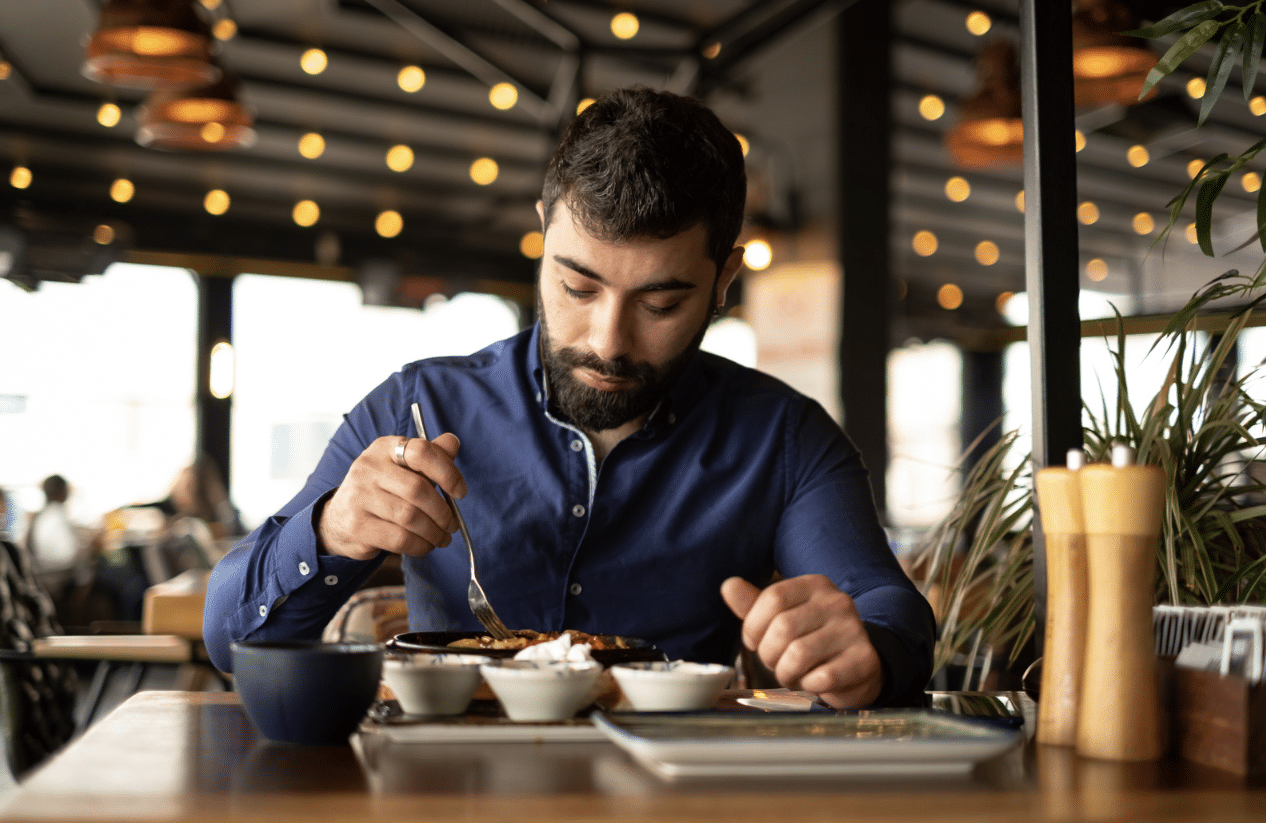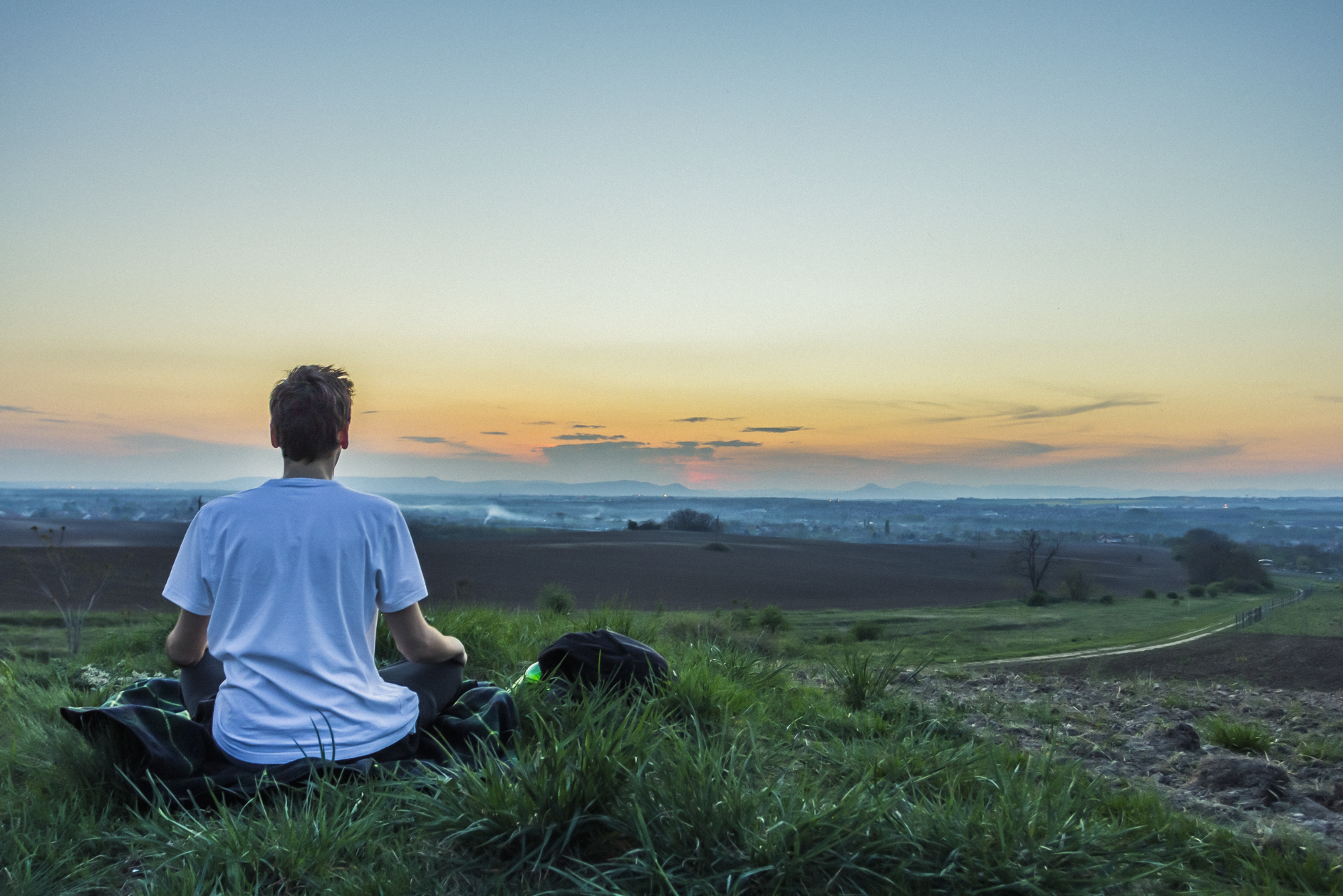You're staring...

What riding bikes and behavioral science can teach you about overthinking
Reading Time: 5 minutes
When covid started I was quite frustrated since the gyms were closed.
I tried to run a couple of times but my knees quickly started to hurt.
I hiked and hiked to many new places but missed intense exercise.
I joined group classes on Youtube but I wasn’t happy about being in front of the screen for another hour.
After months of all shops, stores, and restaurants closing, a bike shop reopened.
I drove to it as fast as possible, texted my friend for his advice on which bike to get, and in less than 2 hours I drove back to my apartment with a bike in the trunk.
I should say, I drove back to my apartment with a lifesaver!
Riding a bike has been a lifesaver.
It takes me out of the house, gets my body moving, allows me to have a multi-sensory experience with what I see, smell, hear on every pedal, and makes it easier for my mind to reset.
For the last 9 months, every Sunday, I ride 7-13 miles up a mountain.
I absolutely love to go for my Sunday bike ride. It’s one of my favorite favorite favorite activities of the week.
And as it happens with many things we love, our minds tell us all types of things about them, about us.
Here is what behavioral science and bike riding have reminded me of and taught me!
Lessons from behavioral science and riding my bike:
-
Comparison thoughts: I can’t ride as fast as others
Sunday is a popular biking day in California. Believe it or not, every single time I’m biking there is often a group of bikers or people riding alone that pass me. My mind says, “they’re so fast, I can’t ride as fast as them…”
Comparison thoughts are a given and we should expect them!
Our minds are constantly comparing ourselves to others. Our minds compare our looks, accomplishments, failures, and everything they can hold onto.
But, you don’t live in anyone else’s head. You don’t know how much doubt and worry people around you have; you don’t know how many feelings of being an imposter shows up in other people’s minds.
And as much as your mind shouts out comparison thoughts, you can make room for them without getting stuck in the comparison trap.
Here are two ACT micro-skills to put into action:
1. Notice those thoughts and label them
For instance, I told myself, “of course, the tricky thoughts are here, it was a matter of time they will show up.”
2. Find your rhythm based on what works for you and what’s happening in your life at that particular moment.
When riding my bike, I wasn’t focused on riding as fast as others or taking fewer breaks. I paused when needed, sipped my vitamin water when needed, watched the beautiful scenery when it surprised me, and kept pedaling without any attachment to “how things are supposed to be or how I should ride my bike.” I just kept pedaling.
When going up the hills, I noticed the tension of my legs so that I knew when to switch gears.
-
Negative predictions: I won’t ever make it to the top
When I started riding on the mountain, my eyes often looked at the curves ahead of me and my mind quickly said “you won’t make it, it’s too far, and it’s too steep.”
ACT Micro-skill:
Expect predictions, watch them, and do what matters.
-
Uncomfortable body noise: I can’t breathe
As I pedaled up the hill, my heart beat faster and faster; I had shortness of breath, hyperventilated, and there was an uncomfortable tension on my legs. Oh boy!
Those physical sensations can be so overwhelming that it makes you want to do anything to stop them. But here is the deal, our bodies make noise. That’s just how it is. The way we think of that noise, and the way that we respond to that noise, that’s what defines whether we handle it effectively or not.
ACT micro-skills to use:
- Watch those sensations, without resisting or pushing them away.
- Radically accept them.
Use an acceptance prompt: An acceptance prompt is a sweet, soft, short, and gentle way to make room for those uncomfortable reactions we experience, all of them, as they are. You can tell yourself:
-
- I’m having shortness of breath and want to watch it for what it is.
- Watch your breathing coming and going, no need to dwell on it
- Watch your heart beating and beating, no need to do anything about it.
-
Decision-making: Should I keep pedaling or should I pause?
Why should I keep riding my bike? Does it matter to endure these sensations physically? Should I continue going? Should I head back?
You see, we often hear messages like “don’t stop, keep going, keep pushing” .. but for me, none of that works because I’m more invested in “flexible consistency” and “values-based moves.”
ACT micro-skills:
-
- Flexible consistency is …
About doing things in a way that is adjustable, adaptable, and changeable. Basically, it’s about creating a schedule that is context-based and not rule-based (You can listen more here)
-
- A Values-based move is …
All about going back to what matters in a given moment, over and over. Doing what matters and living with meaning, doesn’t mean that we’re going to live a perfect path, but a path in which we check over and over what matters in a moment without attachments to any agenda.
In my case, riding the bike is part of self-care. When I go back to that over and over, then it doesn’t matter how fast or how slow I ride the bike, how often I paused, or when I choose to head back. I give myself permission to live my values with flexibility instead of rigidity.
Some rides were harder than others, some of them were epic, but all of them were worth it.
And most importantly, I was present in each one of them. I was doing what matters. All because of ACT skills and behavioral science!
Do you want to get unstuck from wrestling with worries, fears, anxieties, obsessions, and ineffective playing-it-safe actions?
Learn research-based skills and actionable steps to make better decisions, adjust to uncertain situations, make bold moves, and do more of what matters to you.























